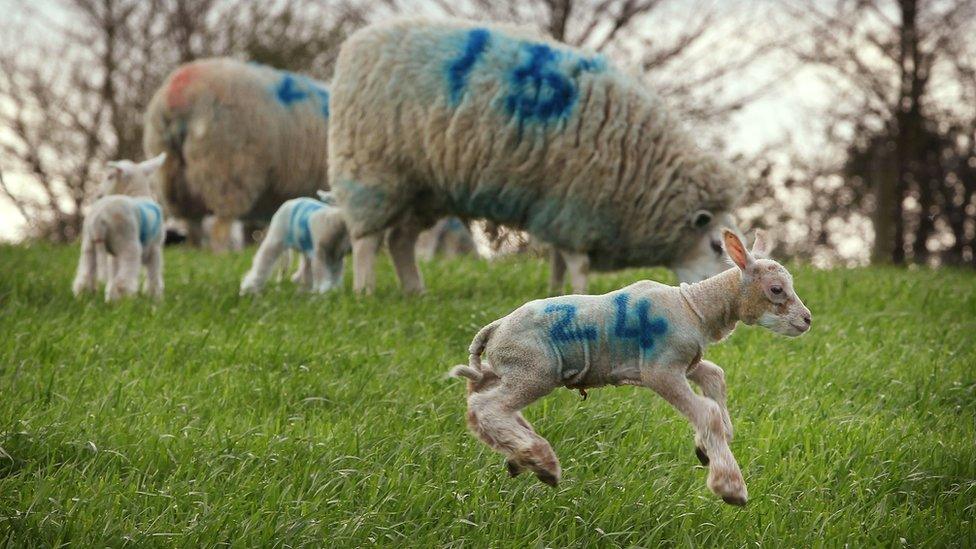Farmer feels vulnerable after spate of sheep thefts
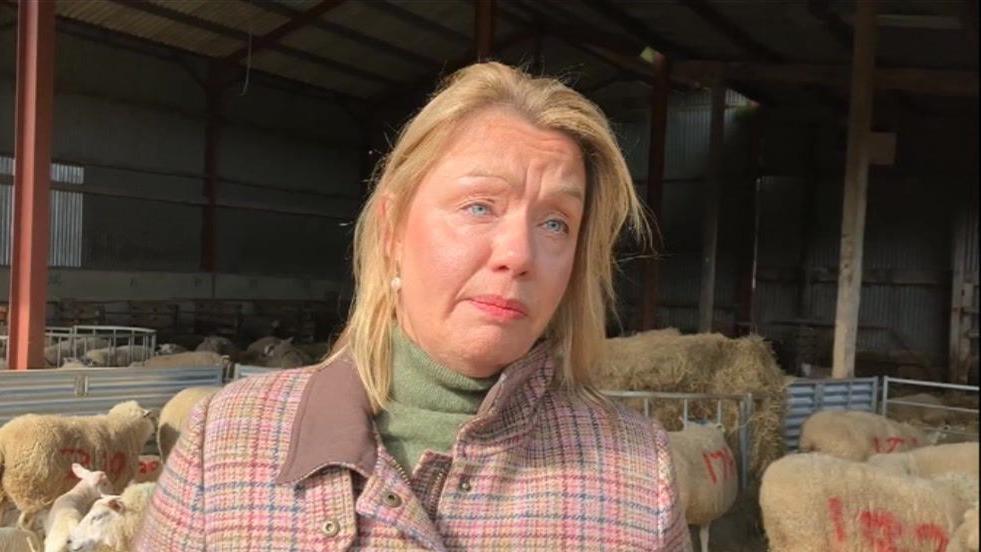
Lizzie Monk says sheep have been stolen from her farm every year for the past four or five years
- Published
A Worcestershire farmer has admitted to feeling vulnerable after thieves repeatedly targeted her farm.
Lizzie Monk, who runs a farm in Bromsgrove, says sheep have been stolen from her 300-acre farm every year over the past four or five years.
In one instance she said about 10 were stolen in a night-time raid, while she has also woken up to find livestock skinned and decapitated in a field.
Police said thieves were thought to be targeting the animals for their meat.
One incident saw dead sheep that had been dumped in West Bromwich get traced back to Ms Monk's farm.
"We have found carcasses up on the hill where they have had their throats cut and they have been skinned," she said.
"They have just the left the head and the skin behind and taken the meat.
"We are vulnerable out here."
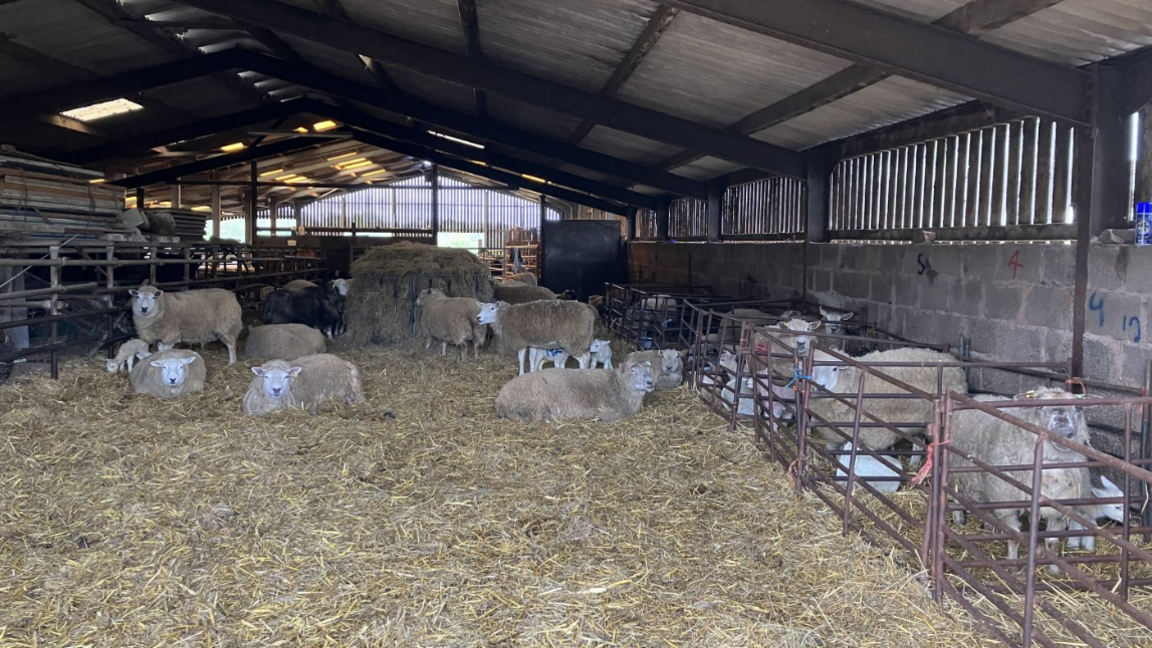
Ms Monk believes her farm is vulnerable because it is one of the first people see when driving out of Birmingham
She said in another local case a calf had been separated from its mother, killed and left skinned.
She said rural crime officers had patrolled the area at night after thefts, which helped.
"I do believe they have tried to help us, but it's so difficult to police when it's such a large area," she said.
West Mercia Police said many of the sheep thefts across north Worcestershire had come during lambing season and describing the thieves as "cruel" because of the impact on the ewes.
Recent cases have included the theft of a pregnant ewe who was later abandoned in Brierley Hill, with police believing the thieves discovered she was pregnant.
Fortunately, another farmer found her and returned her to her owners.
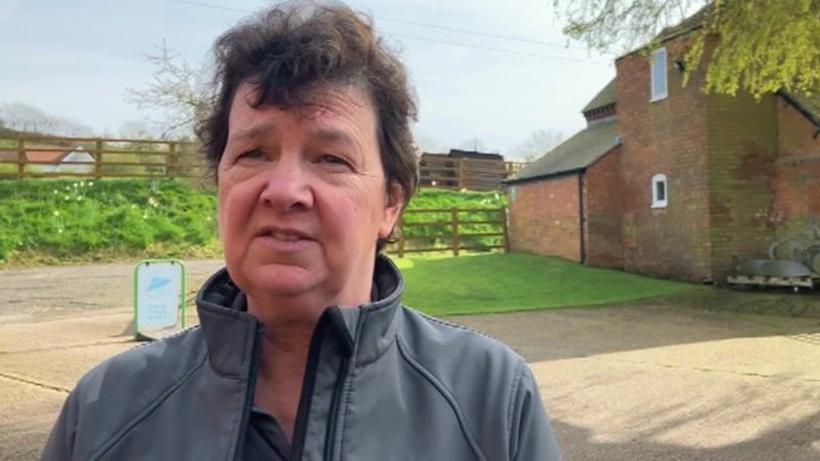
Sarah Sceats, from West Mercia Police, urged people not to buy cheap meat from pubs or from people operating out of car boots
Sarah Sceats, West Mercia Police's Rural and Business Crime Officer for North Worcestershire urged people not to buy illicit, cheap meat.
She said the butchering was often done in an inhumane manner and the quality and safety of the meat could not be guaranteed.
Ms Monk said although farmers ultimately reared animals for their meat, they really cared about the livestock.
"We do our very best for them while they're with us, and then I want to know they're having the proper ending," she said.
"Just for them to disappear is awful for us because we do not know where they go or what happens to them - so it leaves a very bitter taste.
"In a slaughterhouse, there is a vet present all the time the process is happening to make sure the animal welfare is upheld to the highest standard - that will not be happening when they're taken illegally."
Follow BBC West Midlands on Facebook, external, X, external and Instagram, external. Send your story ideas to: newsonline.westmidlands@bbc.co.uk, external
Related topics
- Published4 April 2024
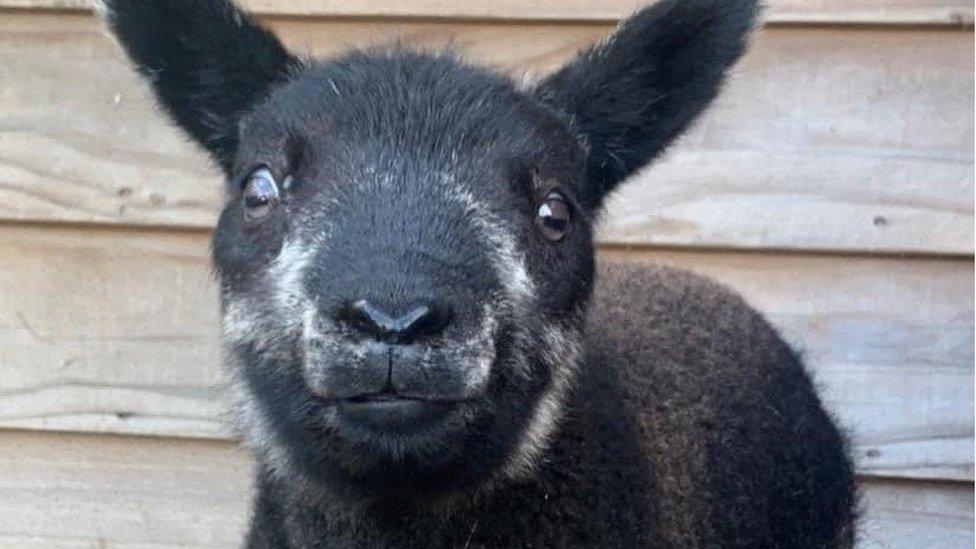
- Published7 January 2016
